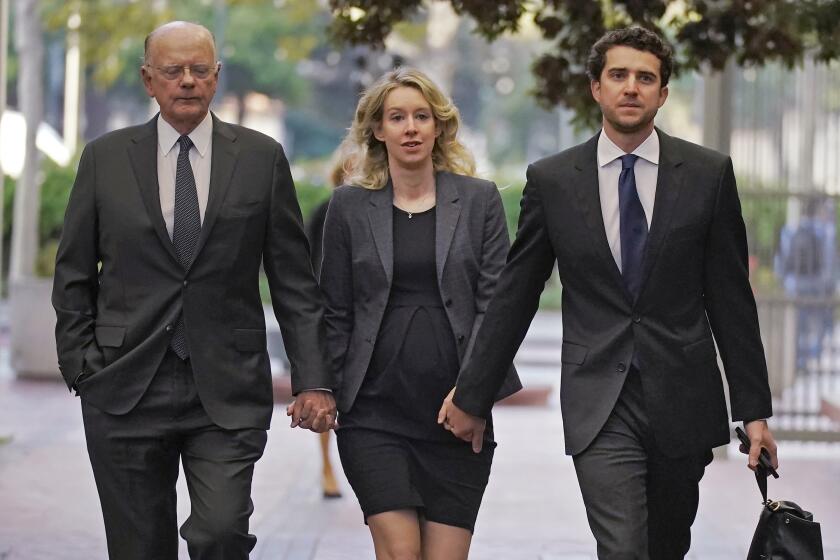SEC Says 1st Chicago Underestimated Its Loan-Loss Reserves
- Share via
First Chicago Corp., the nation’s 11th-largest bank holding company, underestimated its reserves for loan losses by nearly $90 million at the end of 1983, the Securities and Exchange Commission said Wednesday.
First Chicago made major adjustments to its loan-loss reserves in the third quarter of 1984 that should have been made at the end of 1983, the SEC said. The timing is important because additions to these reserves cut directly into profits.
As a result, the SEC said, First Chicago “materially misrepresented” its earnings for two consecutive years, overstating them by $46 million in 1983 and understating them by the same amount in 1984.
First Chicago is the parent firm for First National Bank of Chicago, the largest U.S. bank between the East and West coasts.
Glimpse of SEC’s View
First Chicago announced that it agreed to settle the SEC complaint without admitting or denying the charges. However, the bank did address the agency’s complaint by agreeing to restate its 1983 and 1984 profits and loan-loss reserve levels.
First Chicago said it settled the case because it didn’t want to contest a matter “involving historical financial statements” that have “no impact on the company’s current or future financial position.” Bank officials say the restatement merely involves a readjustment of figures.
The complaint against First Chicago is instructive because it gives an unusually detailed account of how the SEC believes senior management mishandled the classification of major problem loans, including one to an unidentified, family-controlled holding company that owned a sugar-processing concern.
Senior officials at First Chicago did not set up a reserve on the $76.5-million loan at the end of 1983 because they’d received “oral commitments and assurances” that the family owners personally stood behind the troubled loan. Though the SEC didn’t identify the owners, they’re believed to be the Texas-based Hunt family, which owned a sugar refiner named Great Western Sugar.
Later, however, the owners “not only had disavowed the oral assurance but denied ever expressing a commitment,” the SEC said. A spokesman for the Hunts declined comment, citing pending litigation that the family has against many of its lenders, including First National Bank of Chicago.
“In making reserves decisions in a distress situation,” the SEC said, “a lender cannot rely on oral assurances absent reasonable or documented, objective evidence that the assurance will be honored.”
More to Read
Inside the business of entertainment
The Wide Shot brings you news, analysis and insights on everything from streaming wars to production — and what it all means for the future.
You may occasionally receive promotional content from the Los Angeles Times.










